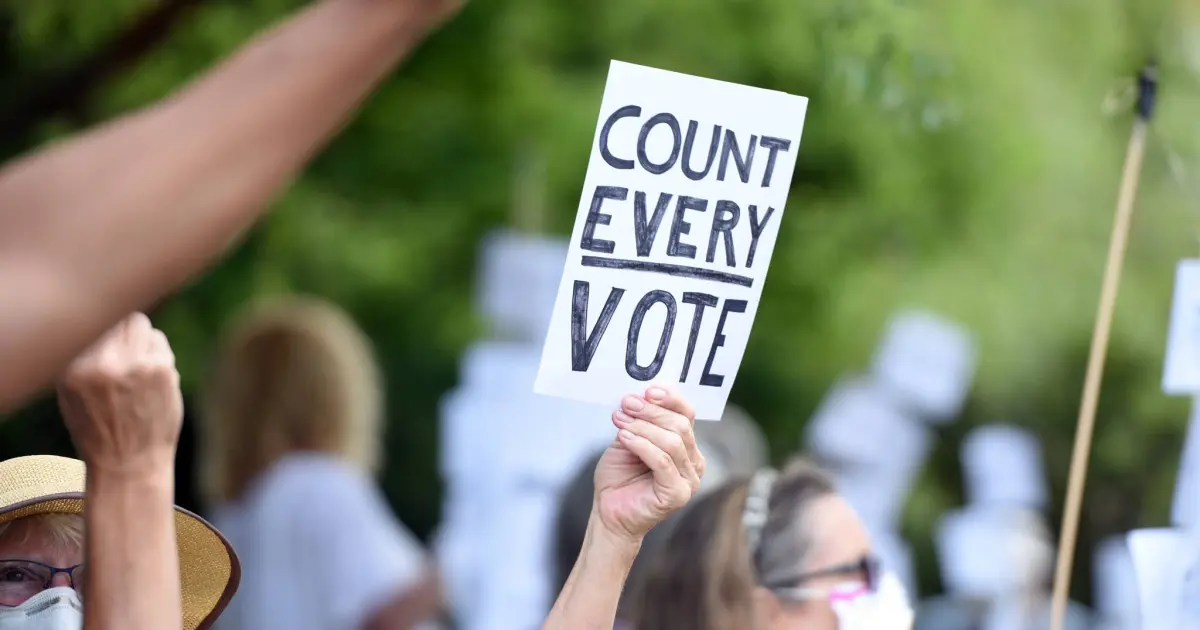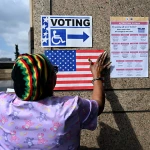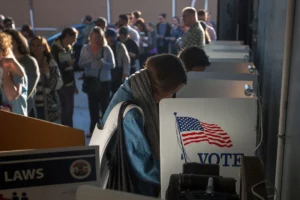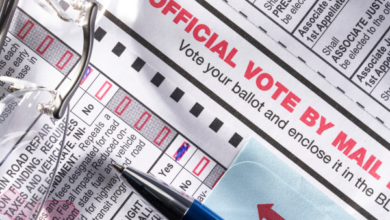What are the Importance of Participating in Elections 2023

The Importance of Participating in Elections
Elections play a crucial role in democracies because they give citizens the chance to select their leaders and shape the future of their communities, states, and countries.
However, it’s a concern that in many places, not enough people turn up to vote. This can have major consequences for a democracy, like a lack of proper representation and possibly even distorting the election results.
Further, It’s important for governments and political parties to take action to boost voter turnout by providing education and information about the voting process, as well as addressing issues that may stop people from voting, like accessibility or logistical barriers.
In addition, Encouraging people to vote isn’t just vital for ensuring fair and just elections, it’s also important for creating a society where people are active and engaged in their communities, which is essential for democracy to thrive.

Reasons To Participate In Elections
There are many reasons why people choose not to vote, from a lack of understanding about the issues and candidates to apathy about the political process.
In addition, it is important to recognize that every vote counts, and that participating in elections is a key way to ensure that our voices are heard and that the policies and leaders we choose reflect our values and interests.
Further, low voter turnout can have an outsized impact on certain groups, such as minorities, young people, and low-income communities.
Moreover, These populations may already face systemic barriers that make it more difficult to access the polls, and a lack of engagement from these groups can further perpetuate their exclusion from the political process. This can lead to policies that don’t adequately represent their interests and needs, perpetuating existing social inequalities.
Importantly, Governments and political parties can take steps to increase voter participation by providing clear and accessible information about voting, making it easier to register and cast a ballot, and removing barriers to voting, such as inconvenient polling locations or confusing voting laws.
Furthermore, Social media and community outreach can also help to engage groups that may feel disconnected from the political process.
Ultimately, promoting high voter turnout is crucial for building a healthy and functioning democracy. By ensuring that all voices are heard and represented, we can work towards a fairer and more just society.

Impacts Of Participation In Elections
In addition to the impact that elections can have on our communities and our lives, voting is also a way to show respect for the sacrifices of those who fought for our right to participate in the democratic process. From the suffragettes who fought for women’s right to vote to the civil rights activists who faced violence and intimidation in their quest for voting rights for all, people have made tremendous sacrifices to ensure that we have the opportunity to choose our leaders and shape our future.
Participating in elections can also have a positive impact on our individual sense of agency and empowerment. By casting a ballot, we can feel that we are playing an active role in shaping the world around us, and that our voices are being heard. This can be particularly important for those who may feel disenfranchised or disempowered in other areas of their lives.
Furthermore, high voter turnout can contribute to greater stability and legitimacy for the democratic process. When large numbers of people participate in elections, it can help to ensure that the results accurately reflect the will of the people, and that the government has a mandate to implement its policies.
Overall, there are many reasons why it is important to participate in elections. By exercising our right to vote, we can help to ensure that our values and interests are represented in our governments and in the policies that affect our lives.

Eligibility Criteria Of Participation In Election
It is important to note that not everyone is automatically eligible to participate in elections. Eligibility criteria can vary by country, but typically include factors such as age, citizenship, and residency status. In many countries, individuals must be at least 18 years old and a citizen in order to vote in national elections, and may also need to be registered to vote in advance.
Eligibility Criteria for Voters
To be eligible to vote in an election, a person must meet the following criteria:
Age
To vote, you must be 18 years old. The voting age is 18 in the United States and Canada. To be eligible for voting, you must be a citizen of the country where you are registered to vote. You must be a U.S. citizen or a citizen of another country with diplomatic relations with the United States.
However, to be eligible to serve in the military, you must be 18 years old.
Citizenship
The voter must be a citizen of the country where the election is taking place. You must be a U.S. citizen to vote in a federal election. To be eligible to vote in a state or local election, you must be a U.S. citizen or a citizen of a country with diplomatic relations with the United States.
Residence
The voter must be a resident of the constituency where the election is taking place. Residence can mean either physical residence or voting residence. A voter’s physical residence is the place where he or she lives.
Moreover, A voter can be a resident of one place while being a non-resident of another place. If the voter is a non-resident of the constituency, he or she cannot vote in that constituency. A person who does not have a physical residence in the constituency cannot vote there either.
Registration
The voter must be registered in the electoral roll of the constituency where the election is taking place. It is important for voters to register in time. Otherwise, they cannot vote. If the voter has moved to another city or state, he or she can’t change his or her registration.
In addition, If he or she wants to vote in the next election, he or she should register again. There are two ways of registering. You can register online or offline. If you want to register online, you will need to go to a website that is hosted by the Election Commission.
Moreover, You will need to provide information such as your name, age, gender, address, phone number, email, and a valid government ID.

In addition, some countries may restrict voting rights for certain groups, such as individuals with criminal records or those who are deemed mentally incompetent. These restrictions can limit participation in the political process and exacerbate existing social inequities.
By promoting inclusive and accessible voting policies, we can work towards a more representative and participatory democracy. Encouraging voter participation among all eligible individuals can help to ensure that our elected officials truly represent the interests and needs of the people they serve.
Conclusion
In conclusion, the importance of participating in elections cannot be overstated. It is essential for citizens to exercise their right to vote and have a say in the future of their communities, states, and countries.
In addition, Low voter turnout can have a significant impact on democracy, leading to a lack of representation and distortion of election results. Governments and political parties must take action to increase voter turnout, including providing education and information about the voting process and addressing issues that may stop people from voting.
Moreover, High voter turnout is crucial for building a healthy and functioning democracy, and promoting it can contribute to greater stability and legitimacy for the democratic process.
However, It is important to promote inclusive and accessible voting policies to ensure that all eligible individuals can participate in the political process and have their voices heard. By participating in elections, we can create a society where people are active and engaged in their communities, which is essential for democracy to thrive.


